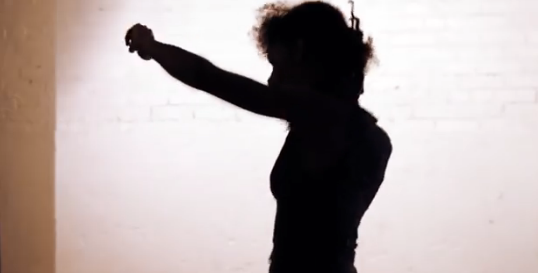Like this article? rabble is reader-supported journalism. Chip in to keep stories like these coming.
In May of this year, Amai Kuda with Y, M1 (of Dead Prez) and Kinnie Starr, released the video “We Can Do It (Dirty Money)” in support of Decolonize Now! (DNOW!). This new coalition aims to connect Black and Indigenous people, as well as allies, taking a stand against the historical and ongoing system of colonization impacting both communities and the earth.
With an emphasis on capitalism’s tool of Big Banks as a method of investing in mining corporations, fossil fuels, and the arms trade, the coalition is a force to be reckoned with and a welcome addition to the ongoing fight against white privilege and colonization.
In a time where folks are still having to justify the inspiring and necessary action by Black Lives Matter during the Toronto Pride Parade, the need for intersectionality is imperative as ever, and met by the actions of DNOW!
I caught up with Amai Kuda and fellow organizers at DNOW!, Kimalee Phillip, and Amy Desjarlais, to discuss this and more. Below is a condensed and edited summary of our discussion.
When prompted about intersectionality, Amai Kuda highlighted that all work must be centred on decolonization. We are living within an economic system “that is destructive of the earth and has its root in over 500 years of slavery, colonization, etc. As long we as we are buying computers, laptops, fossil fuels, we are contributing to the oppression of Indigenous peoples.”
Kimalee Phillip echoed this with her lived experience coming from an African-Caribbean nation and “coming to a stolen land and realizing ways in which the continents of Africa and North America were built on slavery and colonization.”
Without an embedded knowledge of the history of white supremacy and its genocides, storytelling will continue as business as usual.
As such, an important portion of decolonizing social movements is in the method of communication and telling stories. With the release of “We Can Do it,” the intersection of art and resistance is presented, along with the vital component of education.
“Art allows multiple entry points to have conversations, ignore theoretical lingo and engage in creative processes and is a way to engage in work that doesn’t leave us burnt out,” stressed Phillip. And Amy Desjarlais added that art helps to “make people aware of what we are doing as human beings. There is an aspect of teaching and expressing what is in our communities and our beings.”
Kuda emphasized how music has always been part of African and Indigenous teachings of the world, not just to feel good but as a tool of survival. Reclaiming sounds is as important as reclaiming stories.
The group identified the urgency of revolutionary change in education and mediums for communication.
Desjarlais described her work in trauma counselling, being a knowledge keeper in Toronto and how many Indigenous youth are separated from traditional teachings in an ongoing onslaught of colonization, reminding Indigenous communities of first contact. There is a necessity to take responsibility and ensure this never happens again.
Desjarlais referenced APTN and Turtle Island News and how “it is important to have outlets where we can share own stories.”
For Kuda, there has been some progress, but by no means enough in anti-oppression education in the school system.
She pointed out the use of western education as a tool of colonization, and the importance of alternative schools, especially reflecting Indigenous practices and knowledge in bringing truths to light. “Kids and young people need access to basic historical facts, and [to see] how the myth of infinite profit is not sustainable.”
Alternative education that demonstrates this is both possible and necessary throughout the world.
In these ways, knowledge-keeping and taking back both educational and media-related platforms to tell the real story of ongoing corporate colonization are imperative ways that Indigenous and Black communities in Canada use to connect their struggles and harness a mass movement.
DNOW! acts as a vessel for real change on a systemic level. Calling for real alternatives to the capitalist economy and how it reinforces the oppression of colonized communities, settlers and Indigenous alike, the movement calls on all Canadians to look into the intricately woven ways in which we finance this system every day.
DNOW! has many tools and opportunities to get involved — including a list of banks and where each bank invests — calling on us all to look into what goes on under our noses and divest. From any part of Canada, the urge to be involved is most welcome by the organizers at DNOW!.
This grassroots initiative has room for anyone willing to take down centuries of bloody money, and decolonize now!
Tania Ehret is rabble’s B.C. Outreach Coordinator and indie inside coordinator.




